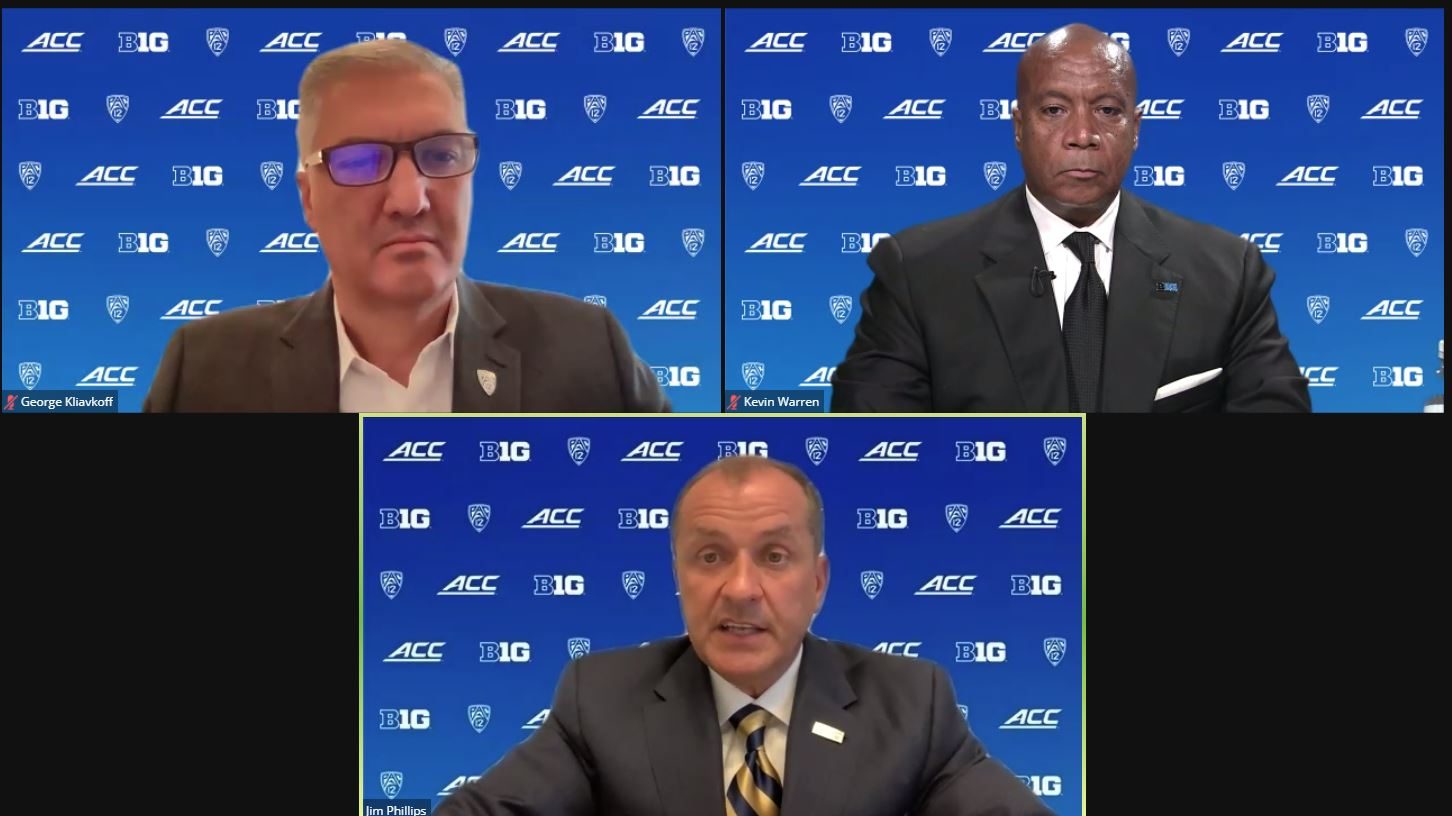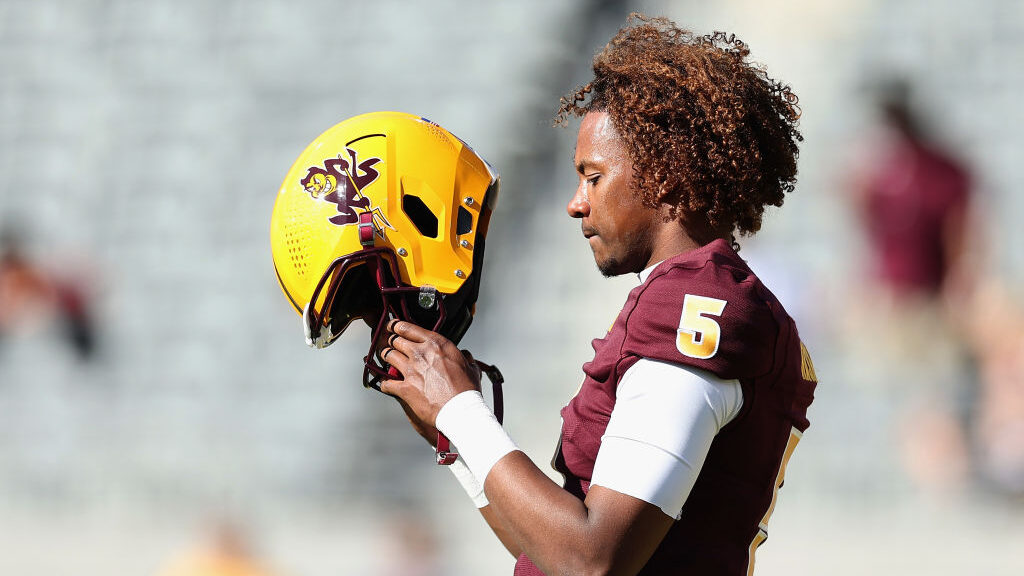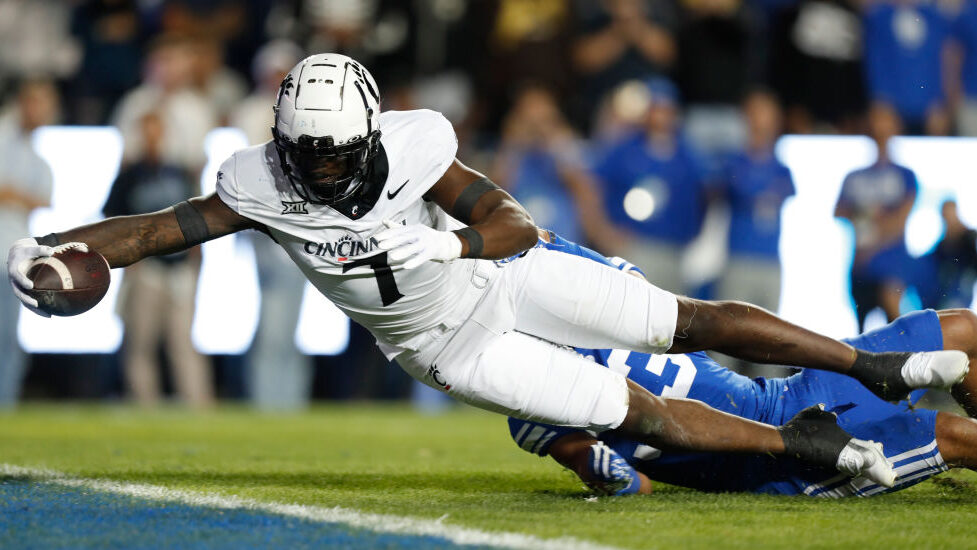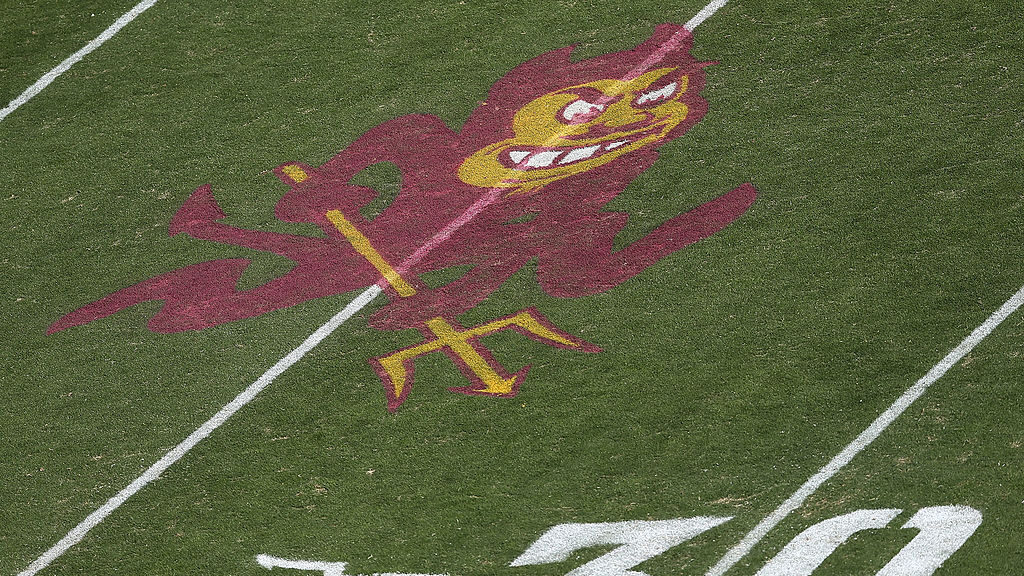Pac-12, Big Ten and ACC commissioners say alliance driven by instability
Aug 24, 2021, 1:21 PM

Screenshot: The Pac-12's George Kliavkoff, top left, the Big Ten's Kevin Warren, top right, and the ACC's Jim Phillips, bottom.
The commissioners of the Pac-12, Big Ten and Atlantic Coast Conference said the non-contractional agreement forming an alliance between leagues was not driven by revenue concerns or the SEC’s addition of Oklahoma and Texas, but rather instability and turmoil in a shifting NCAA landscape.
In a Zoom meeting with reporters, the Pac-12’s George Kliavkoff, Big Ten’s Kevin Warren and ACC’s Jim Phillips said they trust one another to navigate a volatile NCAA together.
“There’s no contract, there’s no signed contract and there doesn’t need to be,” Kliavkoff said. “(Revenue) wasn’t the focus of why we did the alliance. We did the alliance to protect the collegiate model … We weren’t focused on revenue when we were creating the alliance.”
The vagueness of a press release that included seven points of emphasis but did not mention TV rights outlooks, Kliavkoff said, is due to the trio of commissioners wanting to only make promises they can keep.
Tuesday marked the first day of a commitment to work together, but they also said they will continue to support other conferences regarding scheduling and more.
Between them, they outlined these priorities:
- Student-athlete mental and physical health, safety, wellness and support
- Strong academic experience and support
- Diversity, equity and inclusion
- Social justice
- Gender equity
- Future structure of the NCAA
- Federal legislative efforts
- Postseason championships and future formats
The commissioners emphasized that current scheduling commitments for football and men’s and women’s basketball that go years into the future will not be compromised. But in their agreement, they hoped to prop up featured matchups in those sports and Olympic sports.
Warren and Phillips downplayed any acknowledgment that the decisions by the Oklahoma and Texas to leave the Big 12 for the SEC led to the new three-league alliance.
“I think what that did is that allowed all of us in college athletics to take a step back and take a step forward and evaluate …” Warren said. “I wouldn’t say this is a reaction to Texas and Oklahoma joining the SEC … but you have to evaluate what’s going on in the landscape of college athletics.”
That said, the trio has been in discussions with one another in the month since. Phillips joked they have been communicating with one another more than they have with their spouses.
“This was a chance at a new direction, a new initiative, that’s never been done before,” Phillips added.
The commissioners did not discuss the impact of their allegiance to one another regarding television deals, as they remain under contract with their current broadcast partners.
The Athletic reports that expansion of the College Football Playoff — there is currently a 12-team model being proposed — before 2026 would allow ESPN to hold exclusive TV rights for the event. That would further prop up the SEC, whose TV network is owned by ESPN.
The four-chaired working committee proposing the 12-team format does not include representation from any of the Pac-12, Big Ten or ACC. Big 12 commissioner Bob Bowlsby, SEC commissioner Greg Sankey, Mountain West Conference commissioner Craig Thompson and Notre Dame athletics director Jack Swarbrick make up the committee.
The alliance members praised the work by that committee but hedged they are taking their time discussing possibilities with all schools and athletic departments in their respective conferences.
Kliavkoff, former president of entertainment and sports for MGM Resorts who replaced former Pac-12 commissioner Larry Scott two months ago., specifically said the Pac-12 is “100% in favor of expansion.” He believes there are “issues on the margins” of the proposed plan.
But broadcast rights and the possibilities will dictate how those negotiations go.
The agreement among the conferences could eventually lead to more primetime games with the likes of college football powerhouse brands like Southern California, Clemson, Ohio State, Miami, Penn State, Florida State, Oregon and Michigan.
For the Pac-12, which in the past few years has struggled to consistently put College Football Playoff contenders on the field, that could mean more games in the Central and Eastern time zones and getting more eyes on its football teams.
Still, how much the alliance can change with regards to scheduling — and how soon — remains in question.
The Pac-12’s current TV deals with FOX and ESPN expire in 2024, and the conference surely looked to bolster revenue in any way possible as that was one of the major downfalls of former commissioner Larry Scott’s Pac-12 Network deal.
The ACC is locked into a deal with ESPN that runs through 2036 but wanted to keep up in the arms race with SEC in terms of revenue.
The Big Ten’s current deals with FOX and ESPN are up in 2023 and as a conference with some of the most premier brands in college football, it also did not want to be left behind.
However, Phillips and his counterparts remained adamant their priorities align with keeping with the student-athlete model and navigating instability.
“(Money is) usually of the driver of a lot of decision. This is a time we felt we had a responsibility to stabilize a volatile environment,” Phillips said. “Sometimes it can be driven by money. This is too important to too many student-athletes across the country.”







